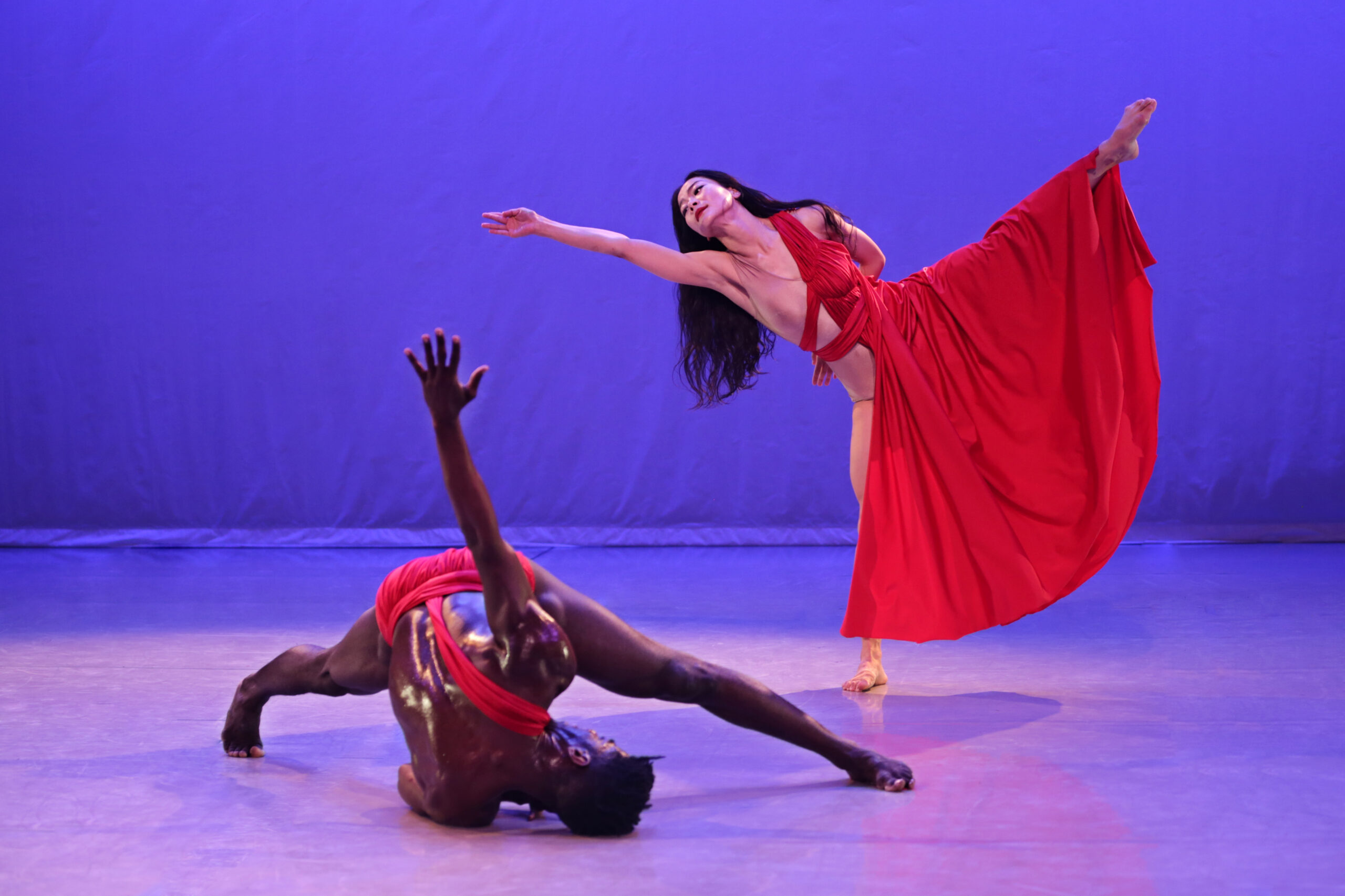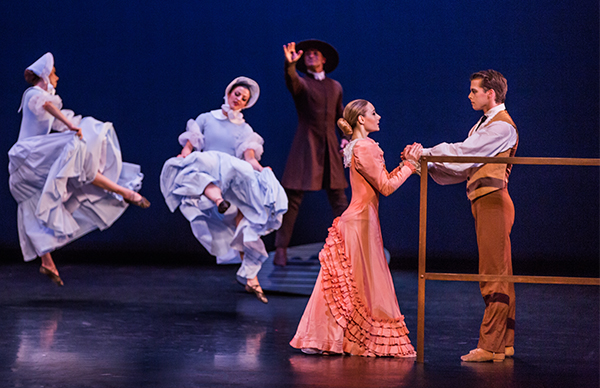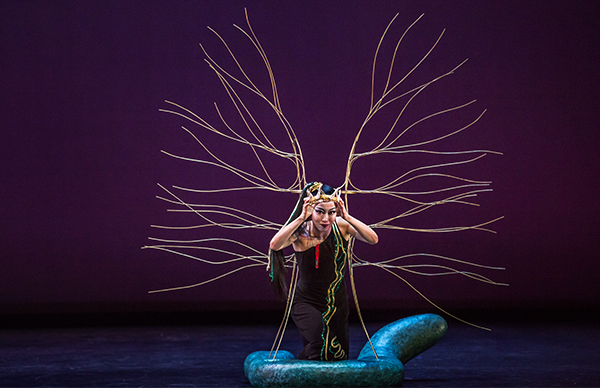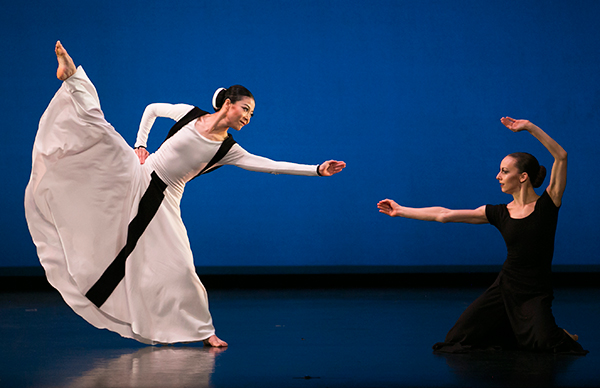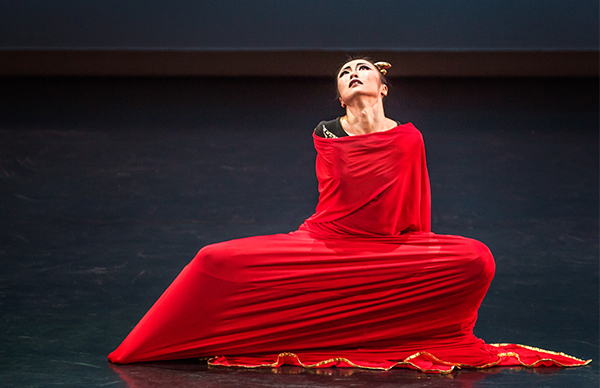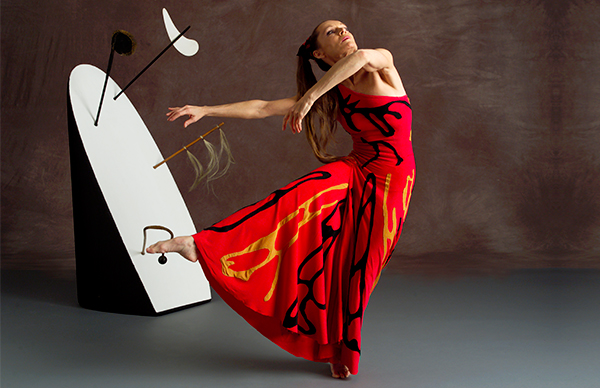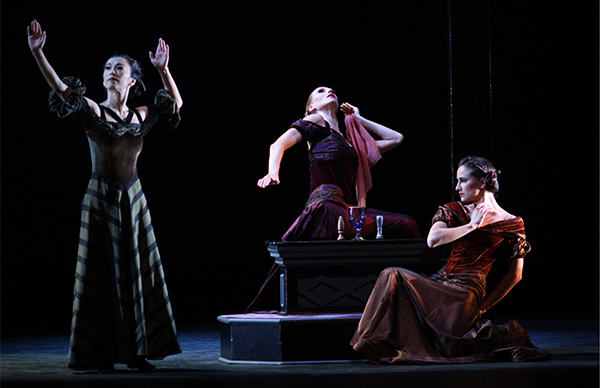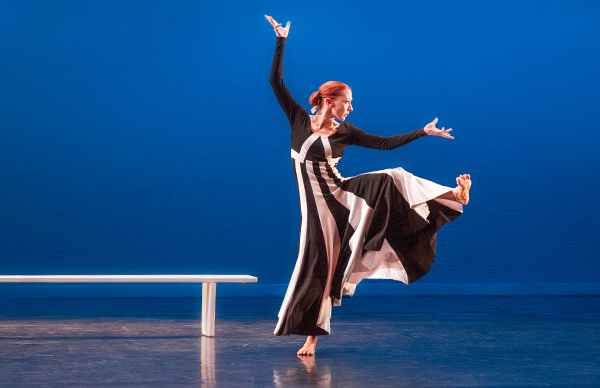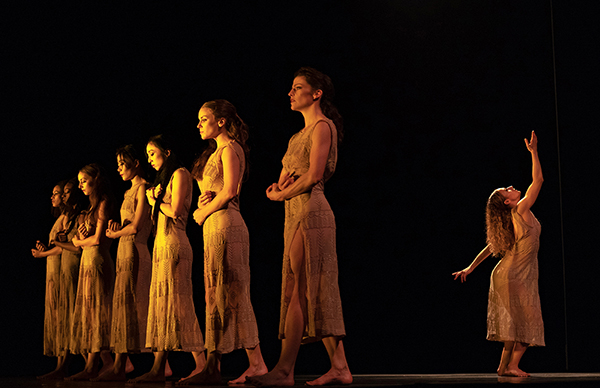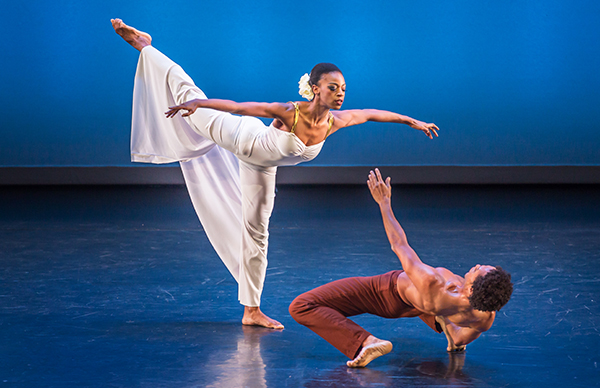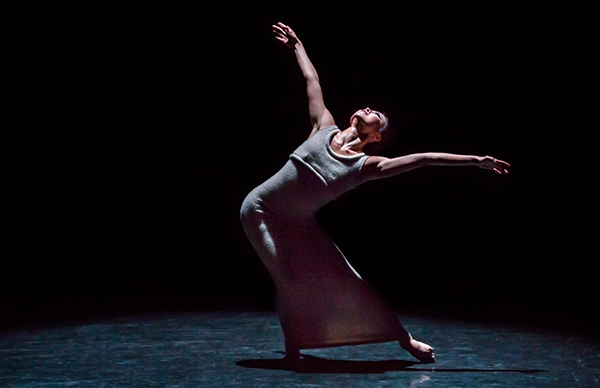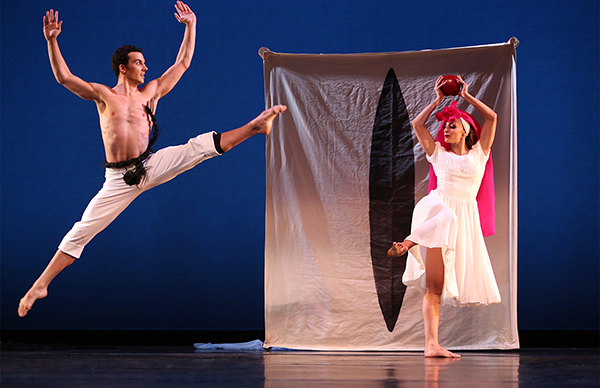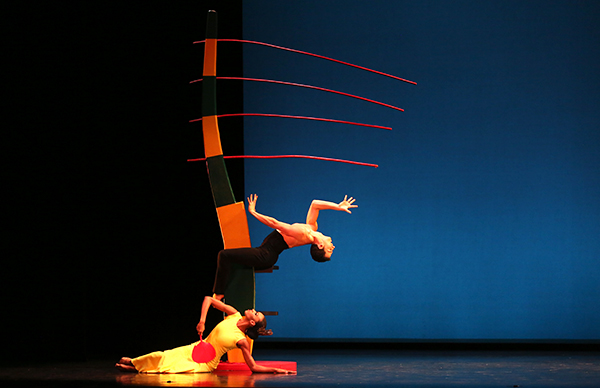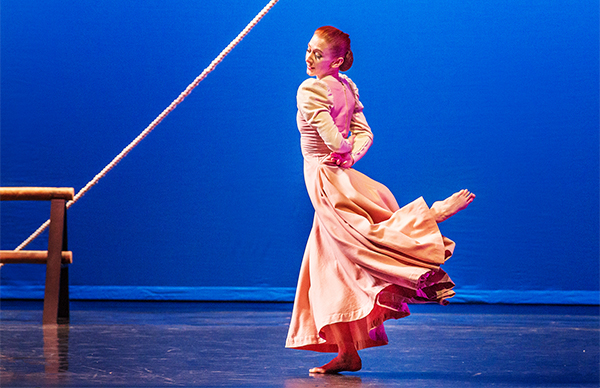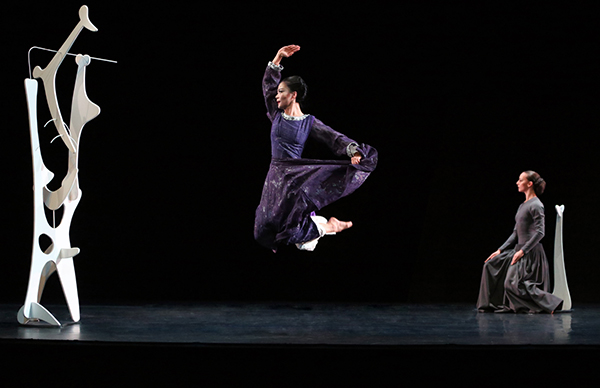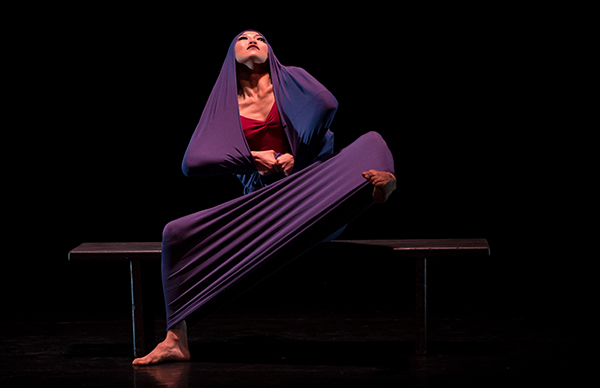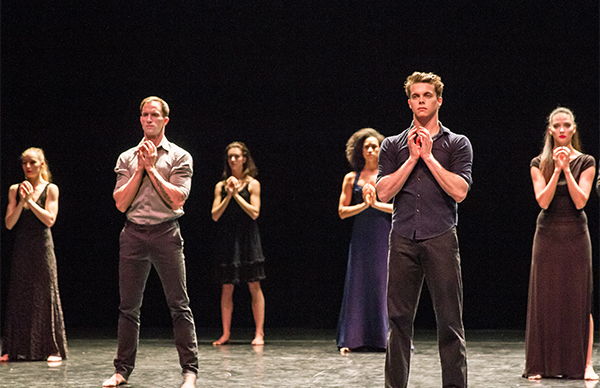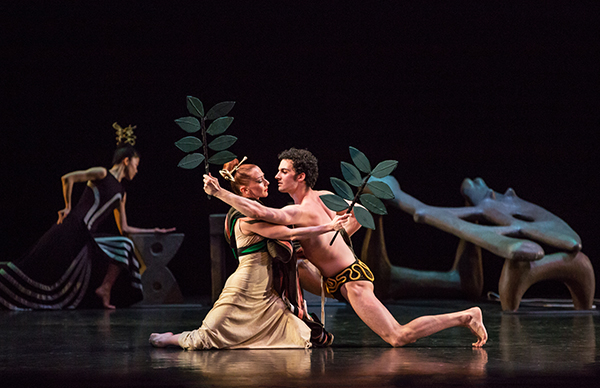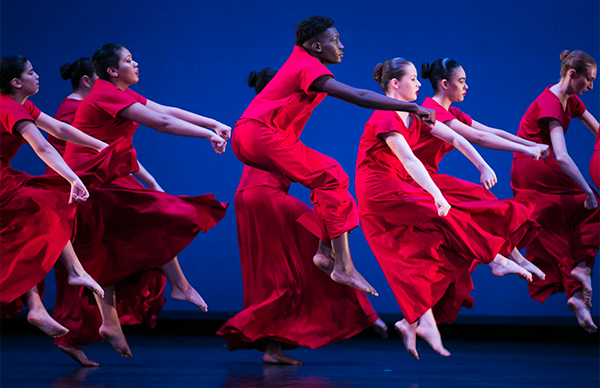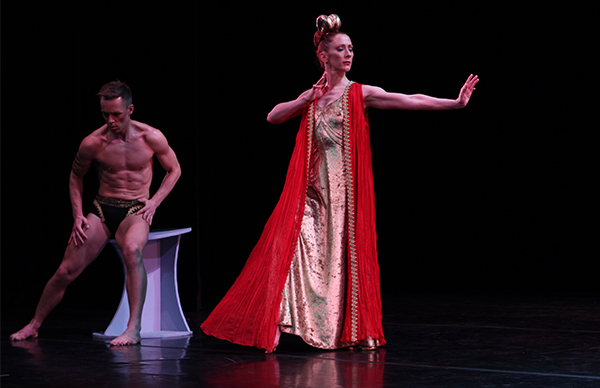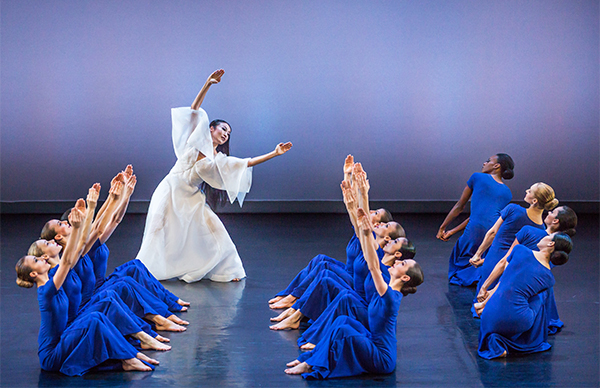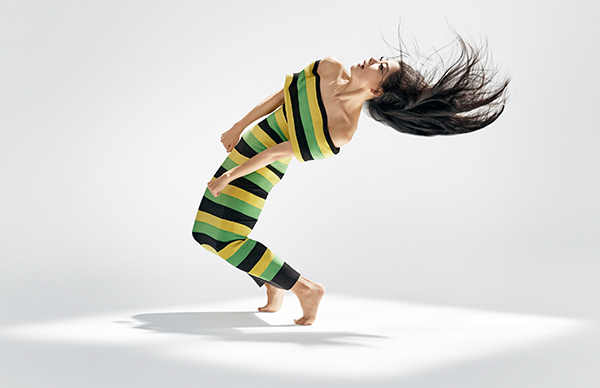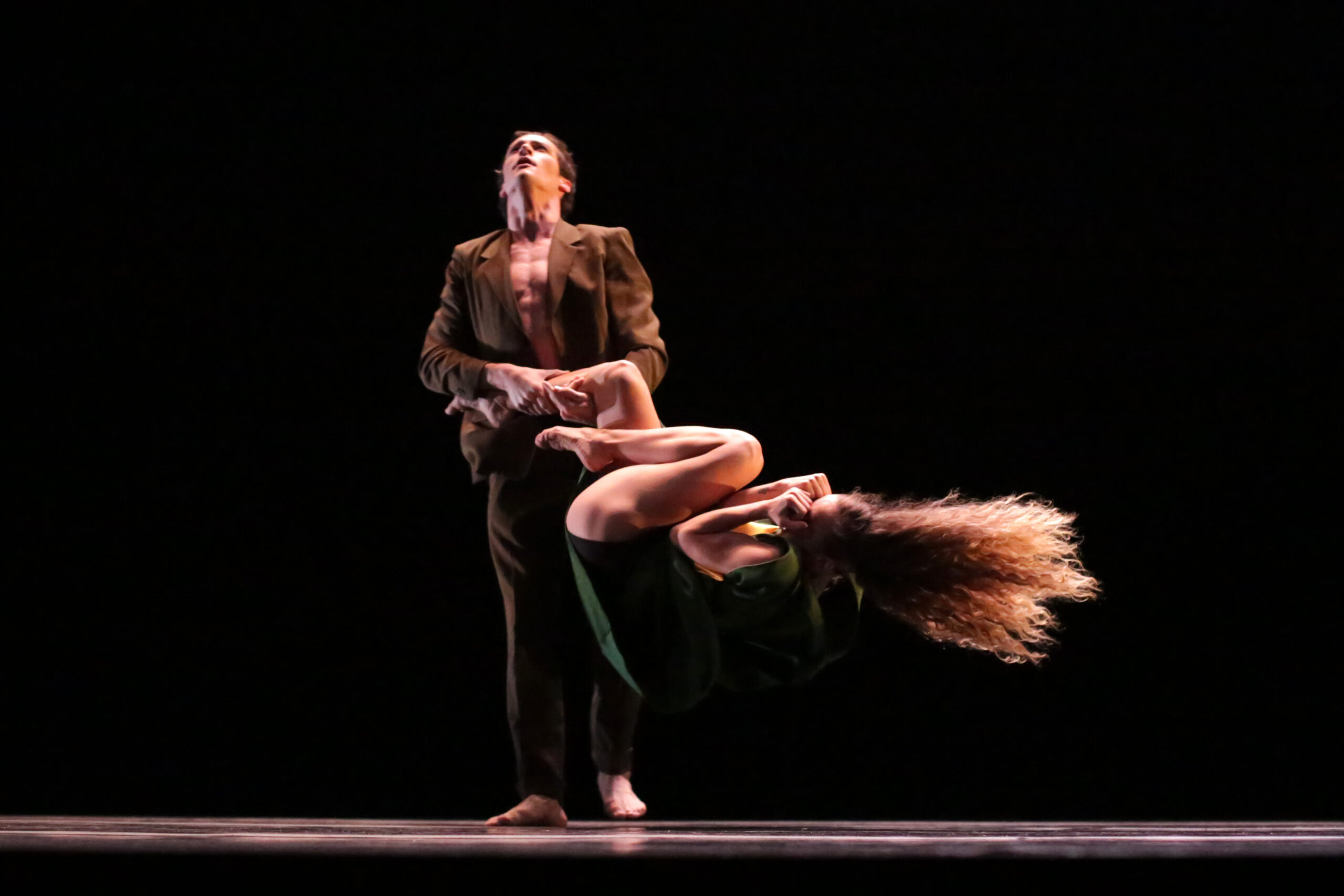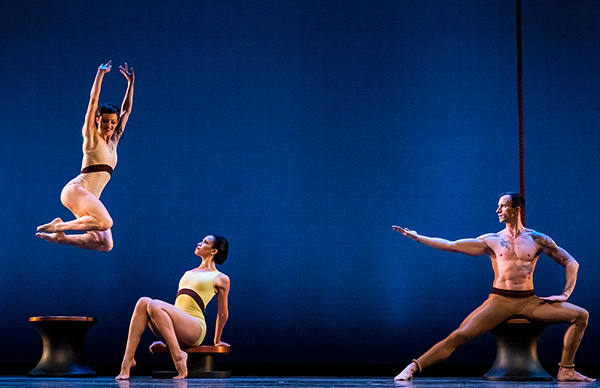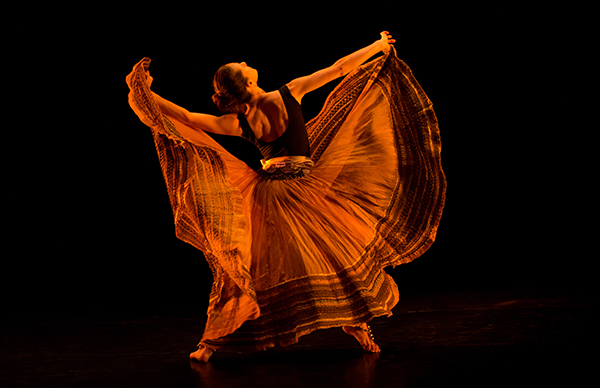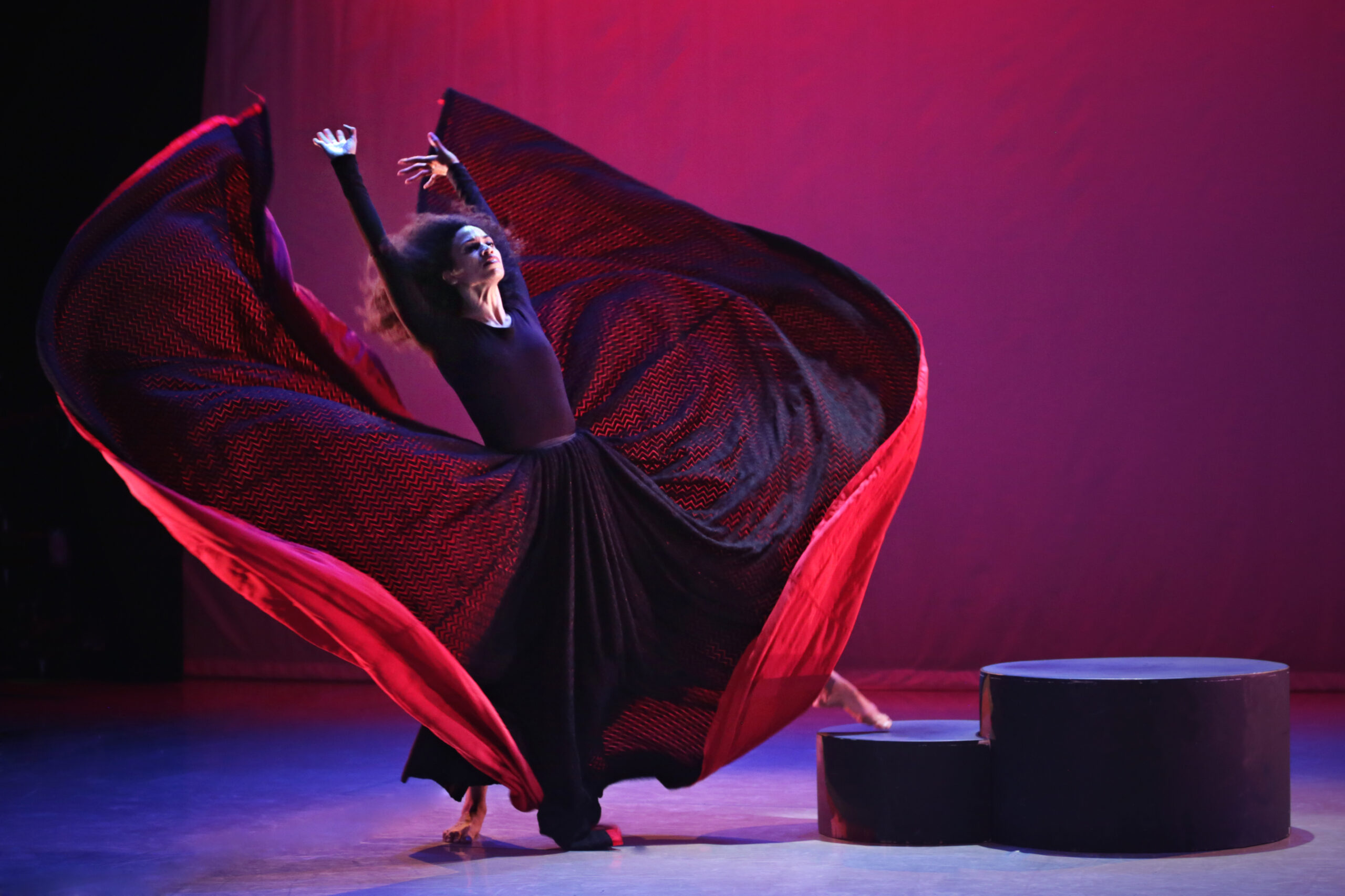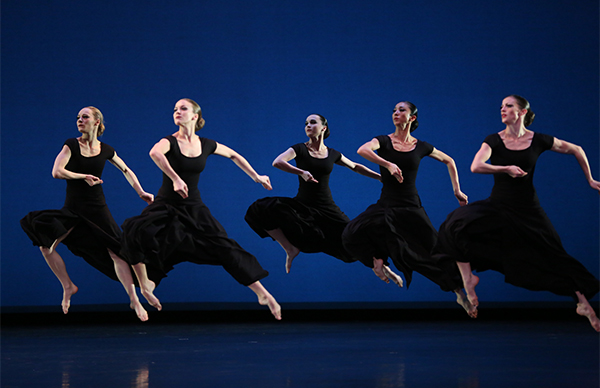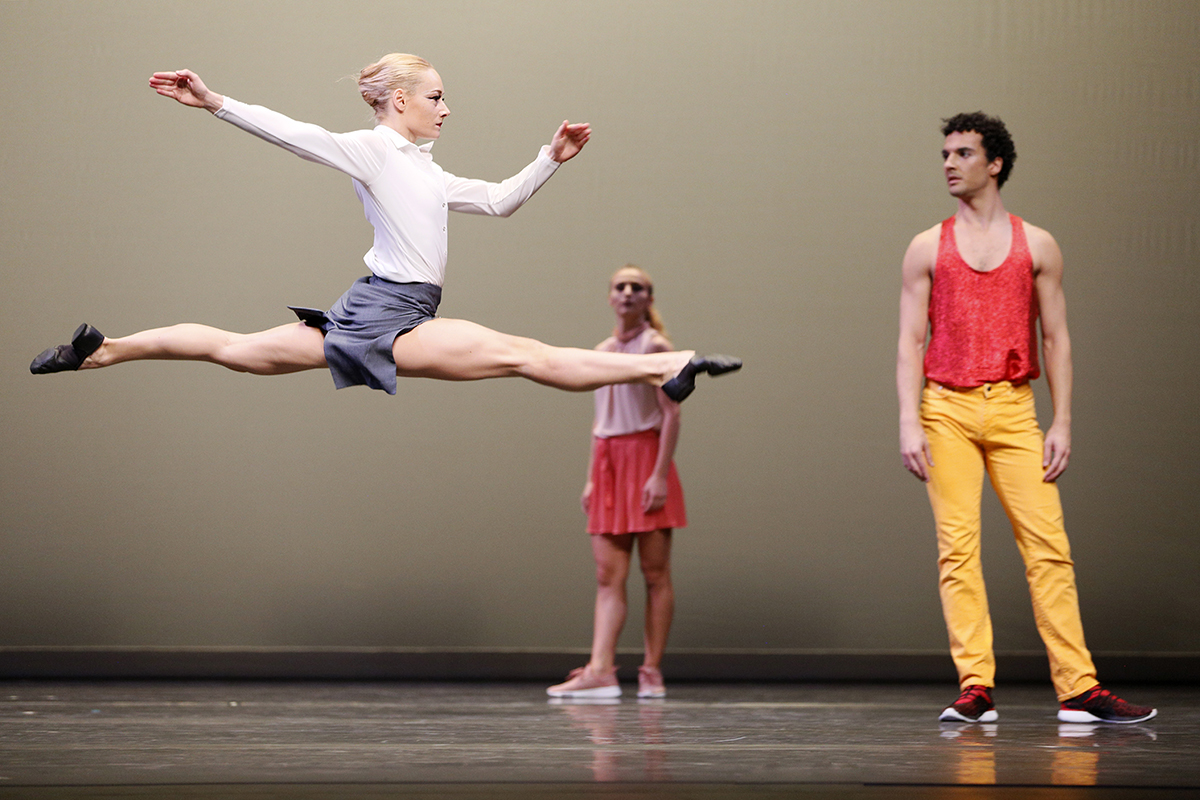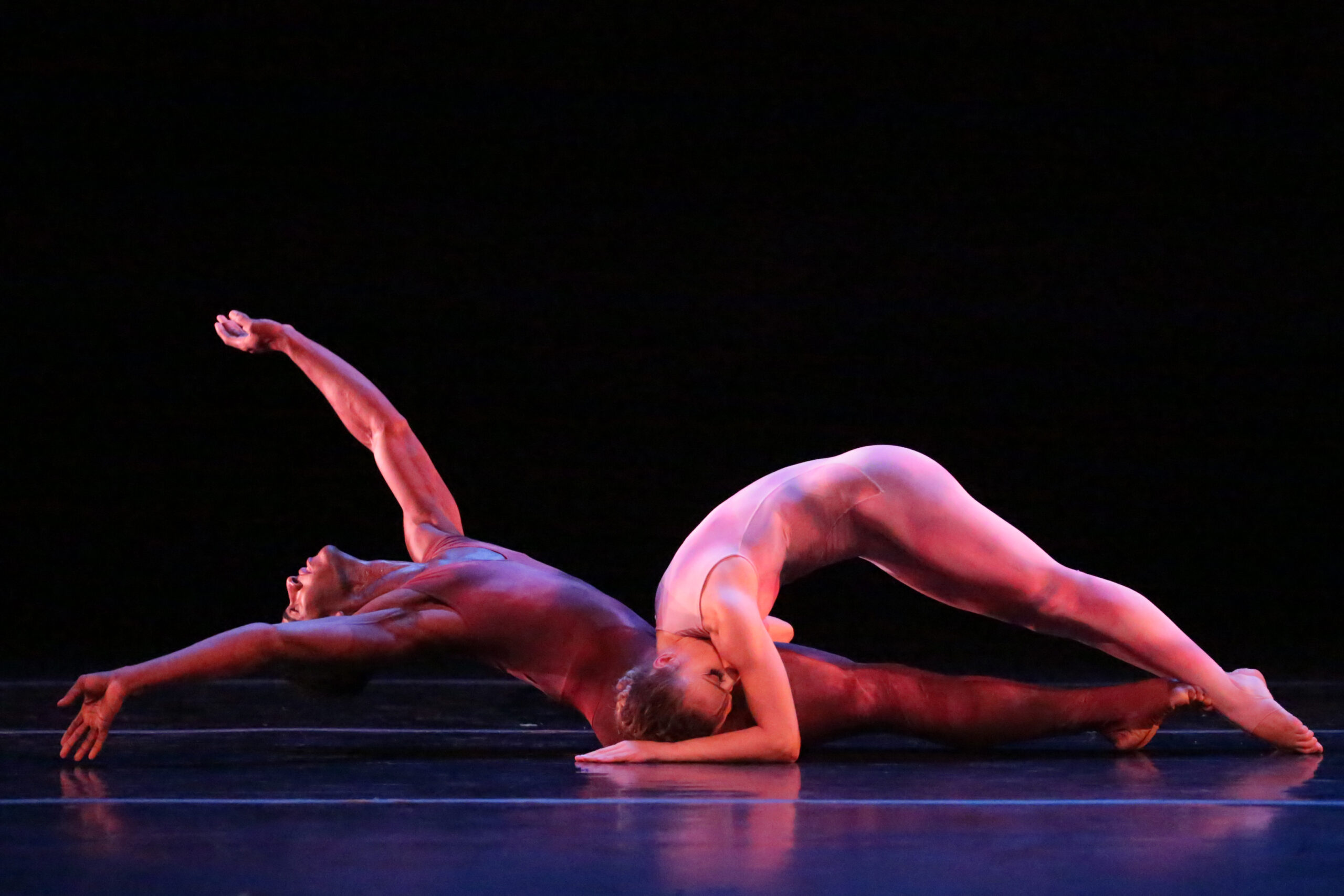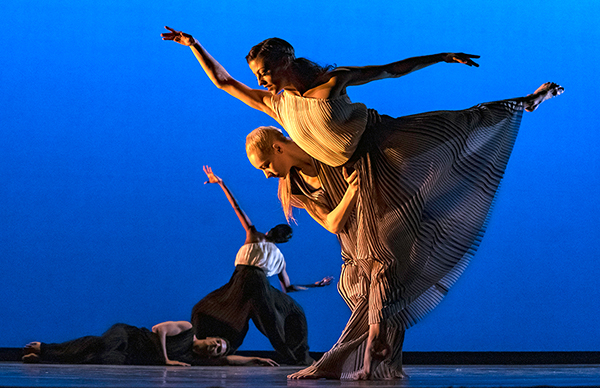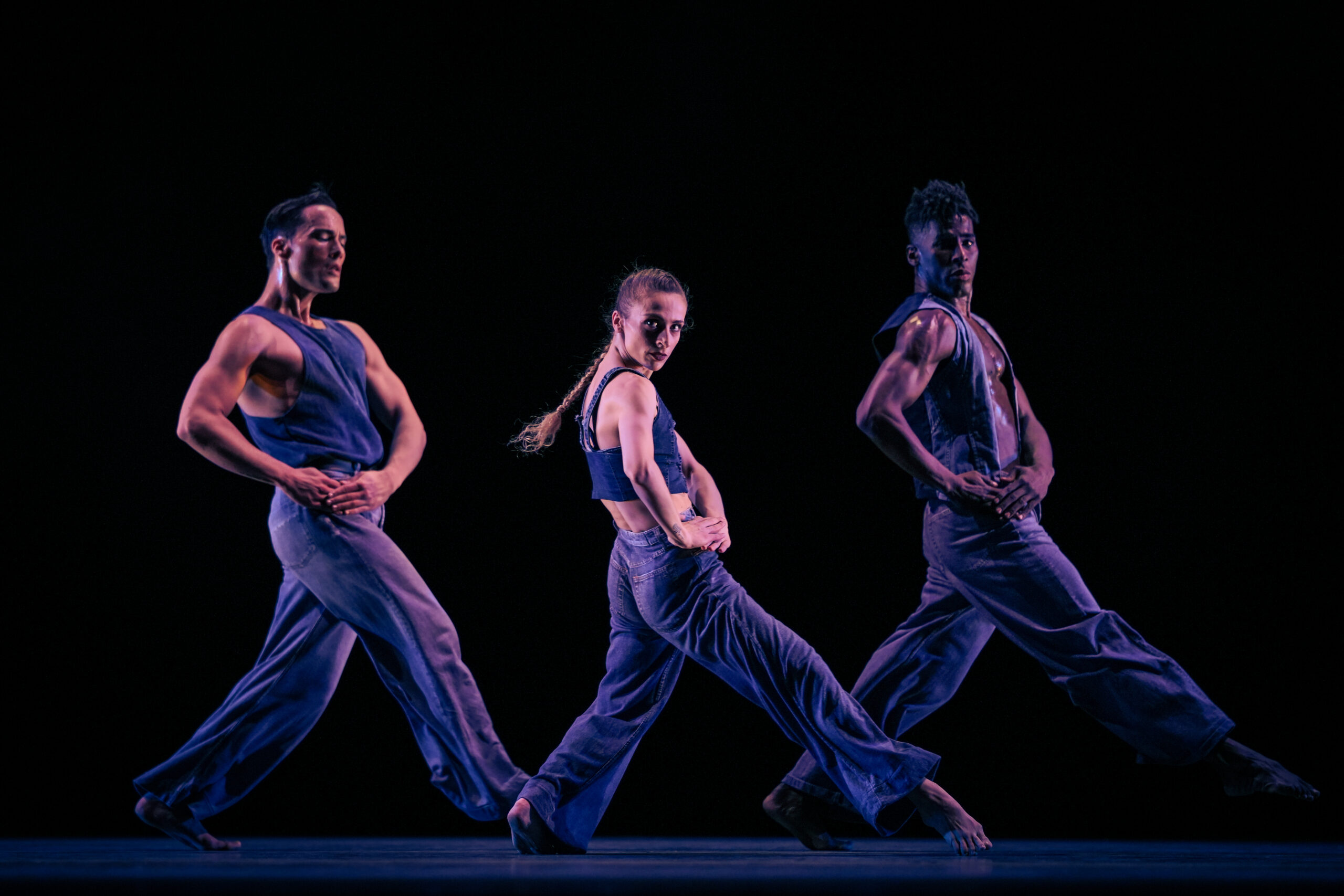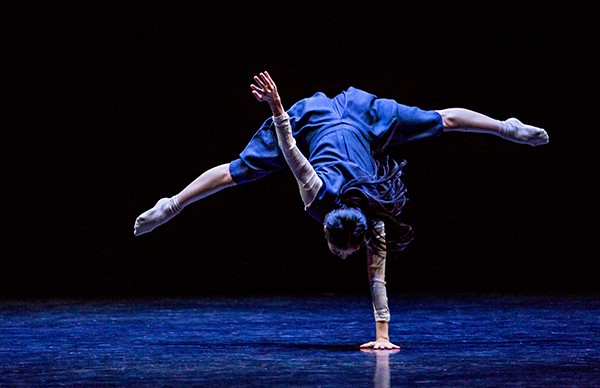

Acts of Light (1981)
A glorious neoclassic work in three parts: Conversation of Lovers, Lament, and Ritual to the Sun.
Score: Carl Neilsen
Costumes: Halston
Appalachian Spring (1944)
Graham’s beloved masterwork and “a testimony to the simple fineness of the human spirit.”
Score: Aaron Copland
Set: Isamu Noguchi
Costumes: Martha Graham
Canticle for Innocent Comedians (1952) and (2022)
The extraordinary multi-choreographer collaboration inspired by the lost Graham work from 1952.
Lead Choreographer: Sonya Tayeh Music: Jason Moran Costumes: Karen Young Lighting: Yi-Chung Chen
CAVE (2022)
A visceral collective movement experience, with a powerful, swirling shared kinetic energy.
Choreography: Hofesh Shechter
Music: Âme and Hofesh Shechter
Costumes: Taylor McNeill and Caleb Krieg
Lighting: Yi-Chung Chen
Cave of the Heart (1946)
A shattering study of the destructive power of love inspired by the story of Medea.
Score: Samuel Barber
Set: Isamu Noguchi
Costumes: Martha Graham
Chronicle (1936)
Graham’s stirring response to the rise of fascism in 1936 and to the unmatched power of the collective will.
Music: Wallingford Riegger
Set: Isamu Noguchi
Costumes: Martha Graham
Clytemnestra (1958)
Graham’s masterpiece of contemporary theater and her only full-evening work, the characters and tragedy of the Trojan War resonate with today’s themes.
Music: Halim El Dahm
Set: Isamu Noguchi
Costumes: Martha Graham and Helen McGehee
Dark Meadow (1946)
One of Graham’s most psychological and abstract works, and noted for its extraordinarily poignant and intricate work for the danced chorus.
Music: Carlos Chavez
Set: Isamu Noguchi
Costumes: Martha Graham
Dark Meadow Suite (1946)
A noted arrangement of highlights from the original featuring the renowned choreography for the ensemble of men and women.
Music: Carlos Chavez Set: Isamu Noguchi Costumes: Martha Graham
Deaths and Entrances (1943)
A prime example of Graham’s early psychological works, the dance is inspired by the lives of the three Brontë sisters and the struggle of women to follow their deepest impulses in the face of convention and tradition.
Music: Hunter Johnson
Set: Arch Lauterer
Costumes: Martha Graham
Deep Song (1937)
A deeply resonant response to the Spanish Civil War, a cry of anguish, this solo is an embodiment of Graham’s fears for a world torn apart by man’s inhumanity to man.
Music: Henry Cowell
Set: Martha Graham
Costume: Martha Graham
Deo (2019)
Choreographers Maxine Doyle and Bobbi Jene Smith collaborate on a work for all women based on the myth of Persephone.
Choreography: Maxine Doyle and Bobbi Jene Smith
Music: Lesley Flanigan
Diversion of Angels (1948)
An ensemble work for the company and a joyous, lyrical, abstract essay on the infinite aspects of love.
Music: Norman Dello Joio
Costumes: Martha Graham
Ekstasis (1933) and (2017)
A reimagining of a sculptural Graham solo from 1933 brought back to the stage by Virginie Mécène.
Music: Ramon Humet
Costume: Martha Graham
El Penitente (1940)
With a modernist style evoking primitive or naïve art come to life, this dramatization is based on the rituals of the American Southwest. We see a troupe of strolling players enact vignettes from the Bible.
Music: Louis Horst
Set: Isamu Noguchi
Embattled Garden (1958)
A contemporary take on the Garden of Eden and a frankly erotic romp, this tragi-comedy explores the timelessness of temptation.
Music: Carlos Surinach
Sets: Isamu Noguchi
Costumes: Martha Graham
Errand into the Maze (1947)
Loosely derived from the myth of Theseus, who journeys into the labyrinth to confront the Minotaur, this duet sends a woman on the mission. The maze may be her own mind and the confrontation may be with her own fears.
Music: Gian Carlo Menotti
Set: Isamu Noguchi
Costumes: Martha Graham
Frontier (1935)
Graham’s masterwork solo from 1935. A young woman facing the future.
Music: Louis Horst
Set: Isamu Noguchi
Costume: Martha Graham
Heretic (1929)
A fine example of Graham’s earliest revolutionary modernism and her recurring theme of the struggle for individuality.
Music: traditional folk song
Costumes: Martha Graham
Herodiade (1944)
A woman struggles with choices of independence and empowerment while another tries to contain her.
Music: Paul Hindemith
Set: Isamu Noguchi
Costumes: Edythe Gilfond
Immediate Tragedy (1937)
A dance of determination and, finally, resilience.
Choreography: Martha Graham reimagined by Janet Eilber
Costume: Martha Graham
Music: Christopher Rountree
Lighting: Yi-Chung Chen
Lamentation (1930)
Graham’s signature solo — the essence of grief itself.
Music: Zoltán Kodály
Sets: Martha Graham
Costume: Martha Graham
Lamentation Variations (2007 -)
Short works for the company inspired by Graham’s iconic solo and created by some of today’s most note-worthy choreographers. A film of Graham is followed by three variations from among those by Aszure Barton, Larry Keigwin, Richard Move, Bulareyaung Pagarlava, and Doug Varone.
Choreography: Various Music and Costumes: Various
Maple Leaf Rag (1990)
An instant audience favorite and a humorous and loving tribute to the choreographic muse and the music of Graham’s youth.
Music: Scott Joplin
Set: American Folk Art
Costumes: Calvin Klein
Night Journey (1947)
One of Graham’s greatest masterworks. A chilling reinvention of the tragedy of Oedipus told through the eyes of his mother and wife, Jocasta.
Music: William Schumann
Set: Isamu Noguchi
Costumes: Martha Graham
Panorama (1935)
A rallying cry for social activism created for 33 students and often performed with the Company as part of Prelude and Revolt or Dance is a Weaponby students at the University where the Company is touring.
Music: Norman Lloyd
Costumes: Martha Graham
Phaedra (1962)
A reflection on the truth about physical passion, untempered by conscience, decency, or civilized principles based on the Greek tragedy of the queen who lusted after her step-son.
Music: Robert Starer
Set: Isamu Noguchi
Costumes: Martha Graham
Primitive Mysteries (1931)
A stark, modern abstraction of religious ritual born out of Graham’s deep connection with the ceremonies of the natives of the American southwest. The work was hailed as a masterpiece at its premiere and launched Graham as a major force in American art.
Music: Louis Horst
Costumes: Martha Graham
Ritual to the Sun (1981)
Devoid of theatrical trappings, Acts of Light celebrates the dancer as an exquisite instrument of expression, while making references to earlier works in the Graham canon.
Music: Carl Nielsen
Costumes: Halston and Martha Graham
Lighting: Beverly Emmons
Rodeo (1942)
Our new production of Agnes de Mille‘s iconic work of Americana.
Choreography: Agnes de Mille
Music: Aaron Copland; Bluegrass Arrangement by Gabriel Witcher
Scenery: Beowulf Boritt
Costume Design: Oana Bote
Satyric Festival Song (1932)
An early, witty solo in which Graham mocks her own serious reputation.
Music: Fernando Palacios
Costumes: Martha Graham
Scavengers (2021)
A dance by Andrea Miller that emerged out of the pandemic experience.
Choreography: Andrea Miller
Music: Will Epstein
Lighting: Burke Brown
Costumes: Oana Botez
Secular Games (1962)
A comedic look at the universal antics of humans trying to impress each other.
Music: Robert Starer
Set: Marion Kinsella
Costumes: Martha Graham
Serenata Morisca (1916)
A solo created by Graham’s teacher, Ted Shawn, and a prime example of American dance in the early 20th Century – the sort of dance against which Graham rebelled.
Choreography: Ted Shawn, reconstructed by Martha Graham
Lighting: Thomas Skelton
Music: Mario Tarenghi
Costume: Martha Graham (after Pearl Wheeler)
Spectre-1914 (1936)
The opening section of Chronicle, Spectre-1914 evokes the foreboding prelude to war.
Music: Wallingford Riegger
Lighting: Jean Rosenthal
Steps in the Street (1936)
A stark, explosive response to the devastation and isolation that war leave in its wake. Performed separately or as the center section of Graham’s Chronicle.
Music: Wallingford Reigger
Costumes: Martha Graham
The Auditions (2019)
Inspired by that recognizable human need to search for something — whether tangible, scientific, or spiritual.
Choreography: Troy Schumacher
Music by Augusta Read Thomas
Costumes by Karen Young
Lighting by Yi-Chung Chen
The Rite of Spring (1984)
The traditional story reenacted in Graham’s unmistakable ritualistic and visceral style.
Music: Igor Stravinsky
Lighting: Solomon Weisbard
Set: Edward T. Morris
Projections: Paul Lieber
Costumes: Pilar Limosner after Martha Graham and Halston
Treading (1979)
Elisa Monte's sculptural, mesmerizing duet.
Choreography: Elisa Monte
Costume: Marisol
Music: Steve Reich
Lighting Design: Tina Charney
Untitled (Souvenir) (2019)
A group work created by Pam Tanowitz using her signature style to manipulate phrases from some of Graham’s lesser-known works.
Choreography: Pam Tanowitz Music: Caroline Shaw
We the People (2024)
Our new production of Agnes de Mille‘s iconic work of Americana.
Choreography by Jamar Roberts
Music by Rhiannon Giddens, Arrangedby Gabe Witcher
Costume Design by Karen Young
Lighting Design by Yi-Chung Chen
Woodland (2016)
A charming work for nine dancers inspired by the innocence and playfulness.
Choreography: Pontus Lidberg
Music: Irvine Fine

